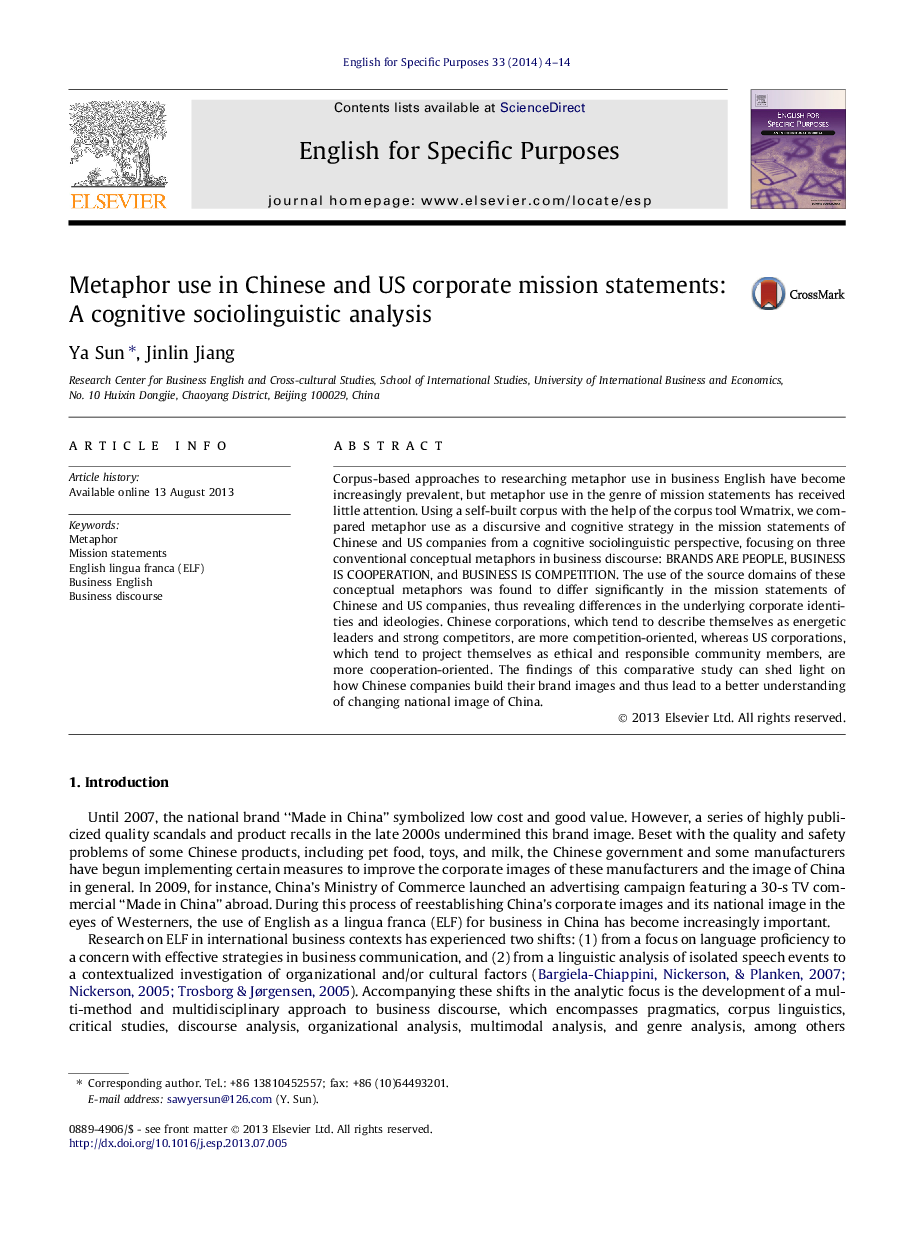| Article ID | Journal | Published Year | Pages | File Type |
|---|---|---|---|---|
| 355486 | English for Specific Purposes | 2014 | 11 Pages |
•The study uses the corpus tool Wmatrix for research on metaphor use.•Differences exist in the use of source domains of the same conventional metaphors.•Different corporate identities and ideologies are found from metaphor use.•Chinese corporate identity is more competition-oriented.•American corporate identity is more cooperation-oriented.
Corpus-based approaches to researching metaphor use in business English have become increasingly prevalent, but metaphor use in the genre of mission statements has received little attention. Using a self-built corpus with the help of the corpus tool Wmatrix, we compared metaphor use as a discursive and cognitive strategy in the mission statements of Chinese and US companies from a cognitive sociolinguistic perspective, focusing on three conventional conceptual metaphors in business discourse: BRANDS ARE PEOPLE, BUSINESS IS COOPERATION, and BUSINESS IS COMPETITION. The use of the source domains of these conceptual metaphors was found to differ significantly in the mission statements of Chinese and US companies, thus revealing differences in the underlying corporate identities and ideologies. Chinese corporations, which tend to describe themselves as energetic leaders and strong competitors, are more competition-oriented, whereas US corporations, which tend to project themselves as ethical and responsible community members, are more cooperation-oriented. The findings of this comparative study can shed light on how Chinese companies build their brand images and thus lead to a better understanding of changing national image of China.
